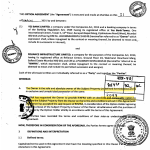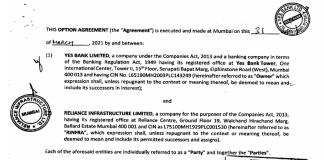- Author Ranina Sanglap
- Theme Banking
India’s nonbanking financial companies will need to choose between cheaper money and less onerous regulation if the central bank accepts a proposal by an internal panel to allow large NBFCs to convert into banks, analysts say.
An internal working group of the Reserve Bank of India recommended in a Nov. 20 report that well-managed NBFCs with over 10 years of experience and 500 billion rupees in assets should be allowed to convert into banks. The proposal includes NBFCs owned by corporates, and also a controversial suggestion of letting industrial and business houses own significant stakes in banks.
If the RBI goes ahead with giving NBFCs banking licenses, it “would reduce overall cost of funds for them,” according to analysts from Motilal Oswal Securities. “Banking licenses may resolve the issues on the liability side” for NBFCs, the analysts said in a Nov. 22 note.
Indian NBFCs have faced funding concerns in recent years after the high-profile failure of Infrastructure Leasing & Financial Services Ltd. in 2018. The liquidity challenge is still being felt today by some smaller players and the COVID-19 pandemic has added to the problems. The RBI granted a moratorium on all term loans earlier this year to help businesses and individuals cope with the pandemic, which hurt the cash flows of NBFCs.
By converting into banks, NBFCs can get more stable funding, in particular low-cost deposits, S&P Global Ratings said. “NBFCs have numerous strengths that will give them a headstart in their entry into banking. These include their existing client bases, distribution networks, brand and risk management systems,” the analysts wrote in a November 23 note.
Huge regulatory costs
However, NBFCs converting into banks will have “huge upfront regulatory costs,” Ratings said. These costs relate to meeting cash reserve ratio and statutory liquidity ratio requirements and lending to sectors such as agriculture, housing for the poor and education that are labeled as ‘priority’ under a government mandate for banks. NBFCs will also need to adjust their existing portfolios to reduce concentration in one segment.
The RBI working group said in its report that allowing large NBFCs to convert into banks may address the systemic risk such entities pose to the system as they would fall under stricter supervision as banks. The working group pointed out that some NBFCs have been operating under the regulatory framework of the central bank for some time and have managed to develop strong risk management systems. Some of the concerns with allowing large corporates to directly own banks may get mitigated through the NBFC route as several elements of the framework overseeing banks have been extended to large NBFCs, the working group said.
Large NBFCs should not be forced to convert into banks, Hemindra Hazari, an independent analyst, wrote on his online portal HKH Research. Instead, the RBI “should ensure that it improves the regulation and supervision of systemically important NBFCs so as to ensure that these entities do not pose a threat to financial stability,” Hazari said.
NBFCs play an important role in the Indian economy as they deliver last-mile financial assistance to small businesses and individuals that the banks have not always been able to reach. The asset size of the NBFC sector, as on March 31, reached 51.47 trillion rupees, Rajeshwar Rao, RBI deputy governor, said in a Nov. 6 speech.
As of Dec. 2, US$1 was equivalent to 73.74 Indian rupees.














